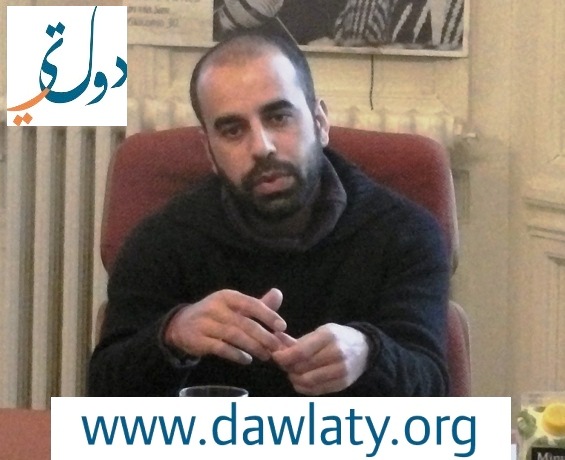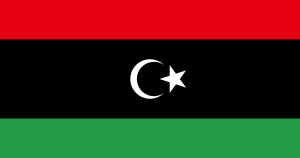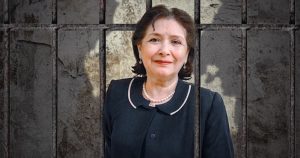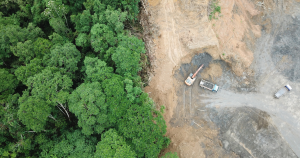On 24 January 2013, No Peace Without Justice hosted a roundtable discussion with Mr Mustafa Haid, Beirut-based human rights activist and founder of “Dawlaty”, an innovative Syrian organisation seeking to increase public awareness of transitional justice within the country as an alternative to violent retribution. The meeting was held in the framework of the Brown Bag Lunch seminar series, which consists of monthly lectures by prominent speakers and experts on human rights and political issues relevant to NPWJ’s work.
Mr Haid explained how the state in Syria is widely regarded as an intimidating structure, an institution of control to which people must succumb. “Dawlaty”, meaning “my state”, seeks to reclaim the notion of the state for individual citizens. It promotes an alternative vision of the state in which individual differences are welcome and respected and open political debate flourishes. To this end, Dalwaty employs audiovisual and text-based training tools – such as cartoons, videos, posters, graffiti and art – to directly engage with citizens, including those in war-ravaged areas in which access to electricity and the Internet is near non-existent.
Dawlaty has recently launched a project on transitional justice in Syria. A thought-provoking series of short videos, all deeply embedded in Syrian culture (often spoken in dialect) and the brutal realities of the Civil War, seek to introduce the public to the concept of transitional justice. The films encourage the documentation of human rights abuses and outline the basic mechanisms of transitional justice, including trials, truth commissions, reparations and institutional reform. They preempt common questions and skepticism about the efficacy of such processes and promote transitional justice in the hope of minimizing popular tendencies towards revenge in favour of accountability, rule of law, civic values and justice.
Concluding his presentation, Mr Haid described the many challenges that Dawlaty are facing. The ongoing war, rising death toll, atrocious conditions and continuing human rights abuses have created doubts as to what the distant concept of transitional justice can really achieve. Yet it is the current dire situation and immense suffering that render efforts to raise awareness of non-violent accountability measures crucial. Dawlaty is preparing for “the day after” the Civil War; whilst its creative approach may seem novel, it serves an object of fundamental importance – to equip citizens with the necessary knowledge to enable a transition towards justice, accountability and a future Syrian state built upon civic values and the rule of law.
For further information:




